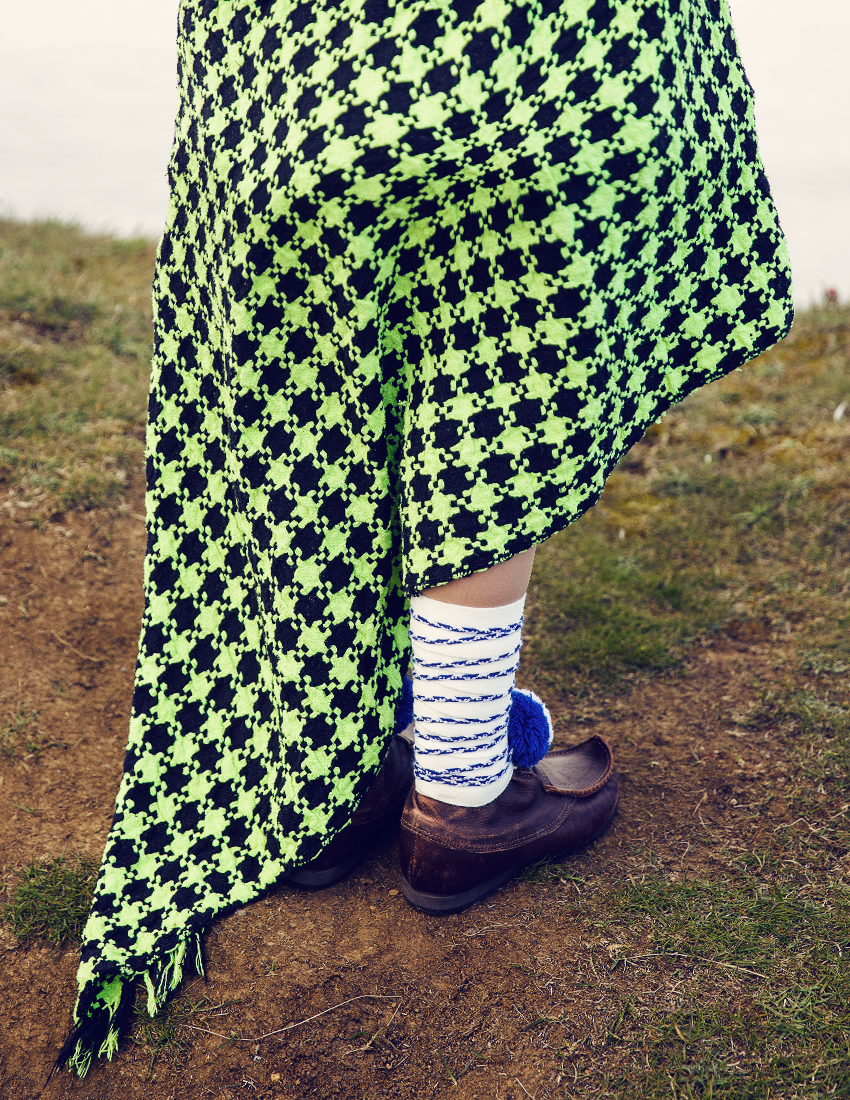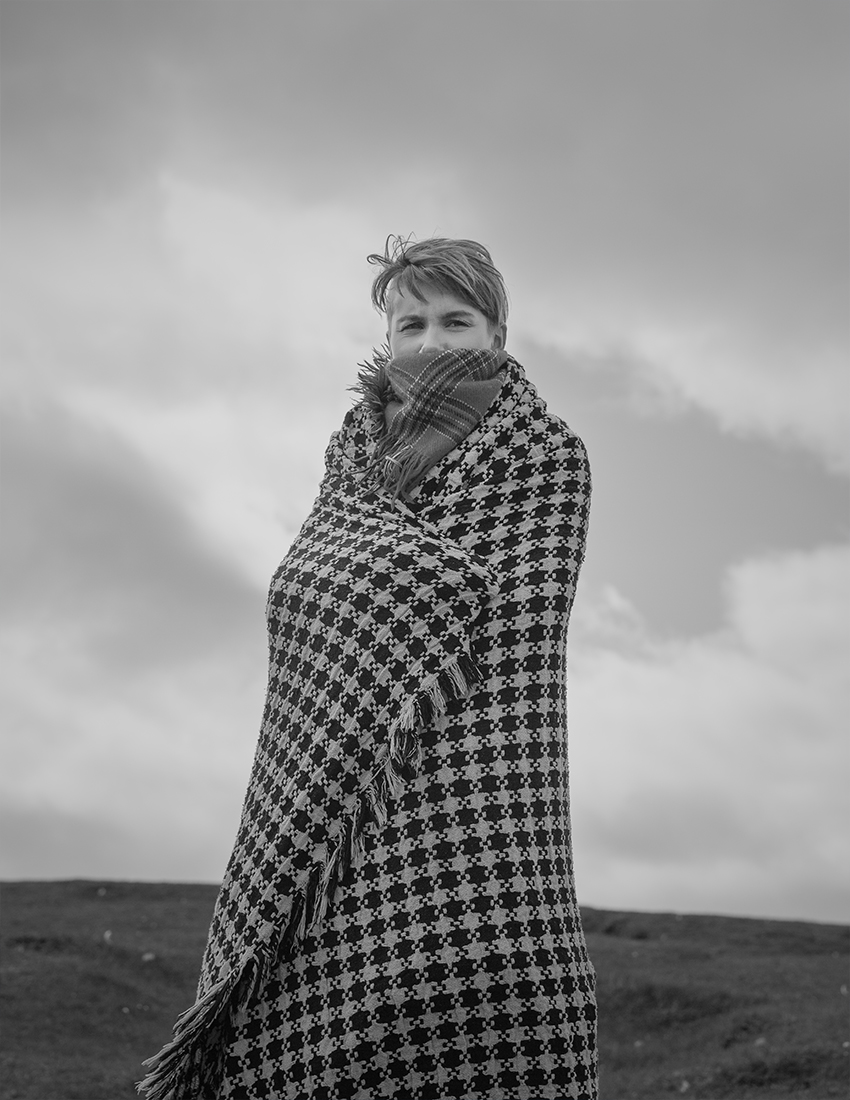
Ella Marie Haetta Isaksen
for
GREENPEACE
Ella Marie Hætta Isaksen is a Norwegian Sami musician from Tana and was the county leader in the environmental protection organization Natur go Ungdom.
The indigenous Sámi people are a Finno-Ugric people inhabiting Sápmi, which today encompasses large northern parts of Norway and Sweden, northern parts of Finland, and the Murmansk Oblast of Russia.





The Sámi people are a Finno-Ugric people inhabiting Sápmi, which today encompasses large northern parts of Norway and Sweden, northern parts of Finland, and the Murmansk Oblast of Russia.
Estimates put the total number of Sami today at around 70,000-80,000. Around half of the total population of Sami live in Norway.
Around 2,600 Sami people in Norway make their living from herding reindeer, and much of the land in northern Norway is used for raising reindeer.
Traditionally, most Sami people have also supported themselves through fishing, farming and hunting, on the coast and on the larger inland rivers.
Climate change and environment
Reindeer have major cultural and economic significance for indigenous peoples of the North. The human-ecological systems in the North, like reindeer pastoralism, are sensitive to change, perhaps more than in virtually any other region of the globe, due in part to the variability of the Arctic climate and ecosystem and the characteristic ways of life of indigenous Arctic peoples.
The 1986 Chernobyl nuclear disaster caused nuclear fallout in the sensitive Arctic ecosystems and poisoned fish, meat and berries. Lichens and mosses are two of the main forms of vegetation in the Arctic and are highly susceptible to airborne pollutants and heavy metals. Since many do not have roots, they absorb nutrients, and toxic compounds, through their leaves. The lichens accumulated airborne radiation, and 73,000 reindeer had to be killed as "unfit" for human consumption in Sweden alone. The government promised Sami indemnification, which was not acted upon by government.
Radioactive wastes and spent nuclear fuel have been stored in the waters off the Kola Peninsula, including locations that are only "two kilometers" from places where Sami live. There are a minimum of five "dumps" where spent nuclear fuel and other radioactive waste are being deposited in the Kola Peninsula, often with little concern for the surrounding environment or population.
Land rights
The Swedish government has allowed the world's largest onshore wind farm to be built in Piteå, in the Arctic region where the Eastern Kikkejaure village has its winter reindeer pastures. The wind farm will consist of more than 1,000 wind turbines and an extensive road infrastructure, which means that the feasibility of using the area for winter grazing in practice is impossible. Sweden has received strong international criticism, including by the UN Racial Discrimination Committee and the Human Rights Committee, that Sweden violates Sami landrättigheter (land rights), including by not regulating industry. In Norway some Sami politicians (for example – Aili Keskitalo) suggest giving the Sami Parliament a special veto right on planned mining projects.
Water rights
State regulation of sea fisheries underwent drastic change in the late 1980s. The regulation linked quotas to vessels and not to fishers. These newly calculated quotas were distributed free of cost to larger vessels on the basis of the amount of the catch in previous years, resulting in small vessels in Sami districts falling outside the new quota system to a large degree.
The Sami recently stopped a water-prospecting venture that threatened to turn an ancient sacred site and natural spring called Suttesaja into a large-scale water-bottling plant for the world market—without notification or consultation with the local Sami people, who make up 70 percent of the population. The Finnish National Board of Antiquities has registered the area as a heritage site of cultural and historical significance, and the stream itself is part of the Deatnu/Tana watershed, which is home to Europe's largest salmon river, an important source of Sami livelihood.
In Norway, government plans for the construction of a hydroelectric power plant in the Alta river in Finnmark in northern Norway led to a political controversy and the rallying of the Sami popular movement in the late 1970s and early 1980s. As a result, the opposition in the Alta controversy brought attention to not only environmental issues but also the issue of Sami rights.
Mining
Sapmi is rich in precious metals, oil, and natural gas. Mining activities in Arctic Sapmi cause controversy when they are in grazing and calving areas. Mining projects are rejected by the Sami Parliament in the Finnmark area. The Sami Parliament demands that resources and mineral exploration should benefit mainly the local Sami communities and population, as the proposed mines are in Sami lands and will affect their ability to maintain their traditional livelihood. Mining locations even include ancient Sami spaces that are designated as ecologically protected areas, such as the Vindelfjällen Nature Reserve. In Russia's Kola Peninsula, vast areas have already been destroyed by mining and smelting activities, and further development is imminent. This includes oil and natural gas exploration in the Barents Sea. There is a gas pipeline that stretches across the Kola Peninsula. Oil spills affect fishing and the construction of roads. Power lines may cut off access to reindeer calving grounds and sacred sites.
Logging
In northern Finland, there has been a longstanding dispute over the destruction of forests, which prevents reindeer from migrating between seasonal feeding grounds and destroys supplies of lichen that grow on the upper branches of older trees. This lichen is the reindeer's only source of sustenance during the winter months, when snow is deep. The logging has been under the control of the state-run forest system.[58] Greenpeace, reindeer herders, and Sami organisations carried out a historic joint campaign, and in 2010, Sami reindeer herders won some time as a result of these court cases. Industrial logging has now been pushed back from the most important forest areas either permanently or for the next 20 years, though there are still threats, such as mining and construction plans of holiday resorts on the protected shorelines of Lake Inari.
Military activities
Government authorities and NATO have built bombing-practice ranges in Sami areas in northern Norway and Sweden. These regions have served as reindeer calving and summer grounds for thousands of years, and contain many ancient Sami sacred sites.